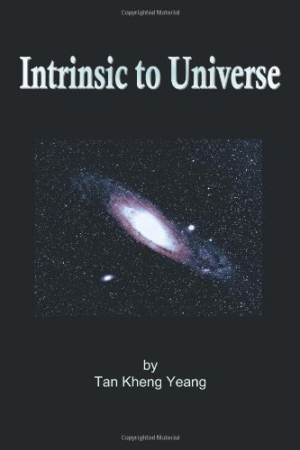Intrinsic to Universe
In Intrinsic to Universe, Tan Kheng Yeang addresses what he perceives as humanity’s common frustration with the near futility of organized society. Yeang begins by asserting that current and past societies function outside the parameters of the universe and are destined to fail. He proposes a new order of things, built upon universal truths like the fallibility of human beings. Through his proposal, Yeang believes that progress can be made and peace can be achieved.
The book is organized into three parts, covering the principles of the new civilization, a religious philosophy, and a political, economic, and social system. It’s a lot to present in four hundred pages, but it’s evident that Yeang has thought and researched a great deal. An engineer by trade, he approaches his subject with the meticulousness readers would expect from a talented scientific mind.
The first part starts with a history of civilization and critiques of prominent civilizations. The second part barely addresses existing religions, which could make religious readers feel that Yeang doesn’t fully understand their perspective. Instead, Yeang proposes—and explains—why he thinks religion and philosophy need to become one: to “coalesce their advantages, and eradicate their faults.” In the third section, Yeang covers economics, political theory, social cohesion, and family. Here Yeang makes statements that hit hardest at the heart of daily life. For example, “The goal of humanity is the cultivation of the mind; the less interest paid to sexual relationship, the better. The family system helps regulate the amorous proclivities of the ordinary person.”
Readers may assume that this is yet another never-to-be-realized, utopian idea, but Yeang is quick to let readers know that he’s not building on a dream but on an honest assessment of universal realities. Many readers will be skeptical of his ideas, even to the point of being dismissive. Others will see wisdom in Yeang’s proposal, and they will struggle to answer the vital question: What now?
Yeang’s book itself is more of a beginning than an end, and it will leave readers who are receptive to his ideas both eager for and frustrated by the next steps in the process of change.
Reviewed by
Melissa Wuske
Disclosure: This article is not an endorsement, but a review. The publisher of this book provided free copies of the book and paid a small fee to have their book reviewed by a professional reviewer. Foreword Reviews and Clarion Reviews make no guarantee that the publisher will receive a positive review. Foreword Magazine, Inc. is disclosing this in accordance with the Federal Trade Commission’s 16 CFR, Part 255.

